About
Nestle
NESTLE has been a partner in India's growth for over a century now and has built a very special relationship of trust and commitment with the people of India. The Company's activities in India have facilitated direct and indirect employment and provides livelihood to about one million people including farmers, suppliers of packaging materials, services and other goods.
The Company continuously focuses its efforts to better understand the changing lifestyles of India and anticipate consumer needs in order to provide Taste, Nutrition, Health and Wellness through its product offerings. The culture of innovation and renovation within the Company and access to the NESTLÉ Group's proprietary technology/Brands expertise and the extensive centralized Research and Development facilities gives it a distinct advantage in these efforts.

Focus Area
Consumer awareness (for e.g. Dietary diversification);h. Education and awareness (for e.g. Classroom education, women empowerment, early child development, child protection, mid-day meals, awareness campaigns for malaria, AIDS, tuberculosis etc.)
Target State
Gurgaon
Objectives
"The objective of this programme is to create awareness regarding nutrition, healthy food, cooking practices, hygiene and physical fitness among adolescents. This programme was launched in 2009 and is presently operational in 22 states. It involves engaging adolescents with the objective that they understand the nutritional requirements their bodies require at this vital life stage of transformation.
Body changes during this time affect dietary needs and integrating healthy practices enables adolescents to grow into healthy adults and adopt the same practices when they start their families.
It also focuses on Education as a powerful tool for ensuring that children understand the value of nutrition and physical activity. As a result of which, the programme is conducted through classroom and game sessions, delivered in a manner where children remember everything they are taught because they are actively engaged and are more willing to absorb the information. The objectives involved are Improving awareness on appropriate nutrition. Improve food habits amongst children and Promote hygiene and physical activity.
"
"NESTLE has been a partner in India's growth for over a century now and has built a very special relationship of trust and commitment with the people of India. The Company's activities in India have facilitated direct and indirect employment and provides livelihood to about one million people including farmers, suppliers of packaging materials, services and other goods.
The Company continuously focuses its efforts to better understand the changing lifestyles of India and anticipate consumer needs in order to provide Taste, Nutrition, Health and Wellness through its product offerings. The culture of innovation and renovation within the Company and access to the NESTLÉ Group's proprietary technology/Brands expertise and the extensive centralized Research and Development facilities gives it a distinct advantage in these efforts.
Gurgaon
Consumer awareness (for e.g. Dietary diversification);h. Education and awareness (for e.g. Classroom education, women empowerment, early child development, child protection, mid-day meals, awareness campaigns for malaria, AIDS, tuberculosis etc.)
Andhra Pradesh, Assam, Chhattisgarh, Delhi NCR;, Goa, Gujarat, Haryana, Himachal Pradesh, Jammu and Kashmir, Karnataka, Kerala, Madhya Pradesh, Maharashtra, Mizoram, Odisha, Punjab, Rajasthan, Tamil Nadu, Telangana, Uttar Pradesh, Uttarakhand, West Bengal
"Delhi, J&K, Rajasthan: Jaipur, Ajmer Maharashtra: Mumbai, Pune Andhra Pradesh: Visakhapatnam, Rajahmundry Telangana: Hyderabad Karnataka: Bangalore, Mysore, Nanjangud Tamil Nadu: Chennai Assam: Guwahati West Bengal: Kolkata Punjab: Moga, Ludhiana Himachal Pradesh: Tahliwal Uttarakhand: Pantnagar Haryana: Samalkha, Rohtak, Karnal Goa: Ponda, Bicholim Madhya Pradesh: Gwalior UP: Lucknow Kerala: Kochi, Trivandrum Mizoram: Aizwal Chhattisgarh: Raipur Odisha: Keonjhar Gujarat: Bharuch "
"The objective of this programme is to create awareness regarding nutrition, healthy food, cooking practices, hygiene and physical fitness among adolescents. This programme was launched in 2009 and is presently operational in 22 states. It involves engaging adolescents with the objective that they understand the nutritional requirements their bodies require at this vital life stage of transformation.
Body changes during this time affect dietary needs and integrating healthy practices enables adolescents to grow into healthy adults and adopt the same practices when they start their families.
It also focuses on Education as a powerful tool for ensuring that children understand the value of nutrition and physical activity. As a result of which, the programme is conducted through classroom and game sessions, delivered in a manner where children remember everything they are taught because they are actively engaged and are more willing to absorb the information. The objectives involved are Improving awareness on appropriate nutrition. Improve food habits amongst children and Promote hygiene and physical activity. "
CSR
NA
"The programme is implemented at two levels. First mode of implementation is through the Department of Home Science and Food Science in six leading universities. These universities through their extension activities collect information on the nutritional status of the region. The content of the programme is developed in collaboration with the respective university partner and is customised for each region. Each student receives 12 hours of nutrition training conducted over six weeks. Pre and post tests are conducted to evaluate knowledge increment, attitude change and practice change.
The second mode of implementation is with our NGO partner Magic Bus India Foundation that imparts knowledge about nutrition and a healthy, active lifestyle by “Sports for Development” (S4D) approach. This programme targets both children from marginalized communities and government schools. They are engaged in interactive sessions in which they receive nutrition and health knowledge and are encouraged to play regularly. Parents and teachers meetings are also organized to create awareness around healthy eating, best cooking practices and hygiene. Each child receives over 30 hours of nutrition training. Various campaigns and activities are carried out at the community level as well in schools. The awareness activities organized at the community level include drawing competition, rallies, sports events, skits, celebrations of hallmark days and tournaments, signature campaigns and parents’ sessions."
Adolescents
Yes
NGO/Development organisations
Magic Bus India Foundation
Yes
"Two baseline surveys were conducted. The baseline study provided values for indicators on status of education, right to play, health, hygiene, sanitation and nutrition, socio-emotional skills and gender among the children. The quantitative component of the study comprised of structured questionnaire survey with children. the Indicators assessed were-
Education: it was observed that across all locations merely 45% children were wanting to undertake higher studies like graduation. This reflects the need for inspiring the children and educating them about the vast potential of opportunities that higher education opens for them.
Right to Play: It was noted that overall close to 95% children reported to be aware of the benefits of playing. However, when asked about the frequency of playing, lesser than one third of children reported playing regularly for 5 or more hours a day. 27% of the intervention group reported to play daily.
Health, Hygiene and Sanitation: The baseline survey reflects that more than 90% of the children have access to improved sources of drinking water and also have separate toilets for girls at school. The baseline survey across all the study locations portrayed poor levels of awareness regarding causes (9%) and remedies (18%) for anaemia among children, leaving a huge scope for improvement.
Socio-emotional skills: Overall, 88% children from both intervention and control groups reported to show mutual respect to each other. Further, close to 60% of the children reported to be able to judge whether their goals are realistic or not, and demonstrate responsible behavior with respect to nutritional choices. Over 70% children interviewed also demonstrated good team behavior.
Gender: It may be surmised that as regards breaking gender stereotypes and establishing gender balance in the community, majority of the children from both the intervention and control groups did not seem to have gender biases. In order to keep this tendency intact, various gender related issues across all the 8 study locations needs to be focused upon.
"
The project is ongoing. For some of the states, endline is planned 2019.
No
NA
Based on the findings of the midline evaluation conducted, marked differences have been observed in the indicators selected to measure the progress of the program.
For the year 2019, the plan is to reach 24,000 adolescents additionally.
"1) Dipti, 7th Class Student: Deepti used to get sick often but has now understood the causes and symptoms of recurring health issues. She leads much healthier lifestyle now, and her mind is more active now. She makes sure that her hands are washed before eating, includes fruits and vegetables in her diet, and keeps the food and water covered. The simple habits such as staying clean and not littering the school campus or the community where she lives has made a big difference. Her mother is also happy about how Dipti is managing waste at home and tells the neighbours to follow same practises.
2) Chandrababu, Principal-in-charge, Attibele Government School-feel Nestle Healthy Kids programme has been successful for two reasons: First, it takes children through every step of how to maintain a healthy, hygienic lifestyle, from a daily morning routine to the seven steps of hand washing and beyond. Second, it is delivered in a manner where children remember everything they are taught because they are actively engaged and are more willing to absorb the information."
"Creating awareness and being able to initiate behaviour change is the main challenge in the programme. Eating healthy food is associated with the thought that healthy food = expensive food. Introducing the beneficiaries to low cost, easily prepared food items was instrumental in breaking this myth and changing the mind-set of the community.
There is a lack of awareness among parents on the significant influence nutrition has on their children’s physical and cognitive development. Children attending these sessions often come from some of the most disadvantaged communities, where meeting basic food requirements is a daily struggle. They are vulnerable to malnutrition and its numerous consequences. In such an environment, it becomes critical to educate children on the importance of health and nutrition.
"
"Extensive progress has been made towards improving school participation. More than 96% adolescents are attending school regularly and aspire to continue education. Noteworthy progress has been made towards enhancing hygiene practices among adolescents. More than 95% adolescents practice personal hygiene and wash fruits/vegetables before eating. Significantly, more children have become aware on vital nutrition elements and about Vitamin A, anaemia, its symptoms and remedies. Awareness level in Bangalore, Chennai and Delhi is comparatively low with other locations. The trend reflects that if provided with desired quantities of IFA tablets, there is high possibility that the adolescents will consume them which will go a long way in curbing the prevalence of anaemia and ensuring optimal growth & development of children.
The major strengths of the program include the scale and scope of the program, engagement of youth and volunteers, addressing lack of awareness pertaining to nutrition and disease prevention, encompassing direct and indirect beneficiaries both, sports for development mode of engagement and impact driven programme. The weaknesses is that there is more scope in the program to be more integrative to further strengthen its active play component.
"
Nutrition plays a significant role in laying a healthy foundation, just as education and awareness help us stay healthy. Recognising the role of good nutrition, we have specifically designed the Nestle Healthy Kids Programme for children and adolescents. We want to impart the value of how the right nutrition , coupled with a healthy lifestyle ,can help children live healthier lives.




